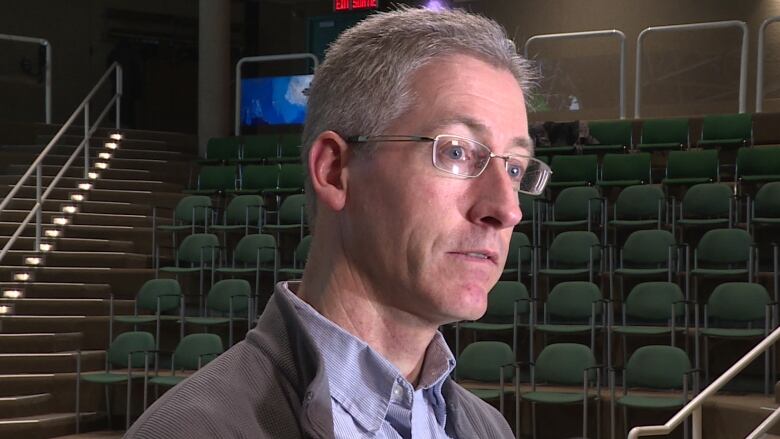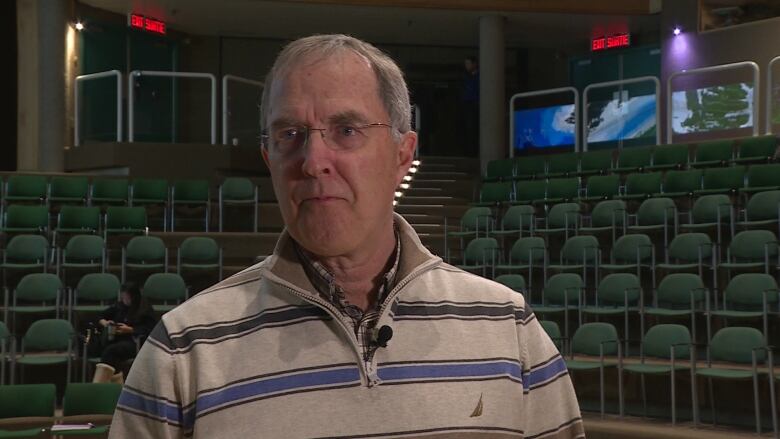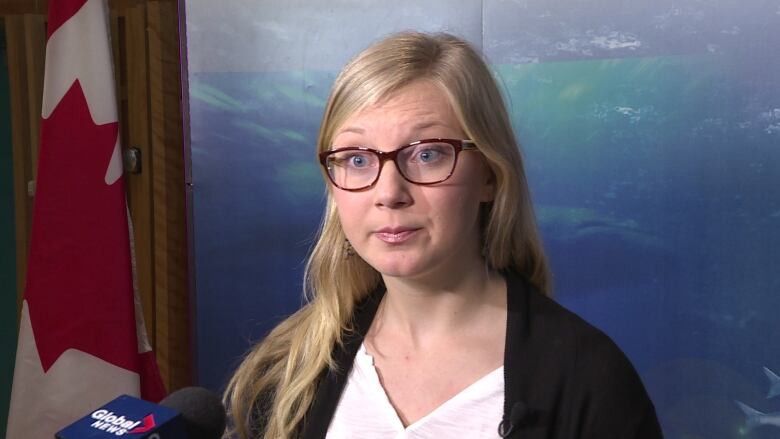Climate change researchers in Nova Scotia call for renewed funding
'At this point, we don't know what's going to happen,' says researcher Blair Greenan

A team of researchers at the Bedford Institute of Oceanography isquestioning the future of itsresearch now that funding for itsclimate change program is set to run out in a matter of weeks.
The Aquatic Climate Change Adaptation Services Program (ACCASP) was established in 2011 byFisheries and Oceans Canada. It brought togethera number of scientists to focus their efforts entirely on how climate change is affecting Canada's Atlantic region.
It was the first time extensive research has been done exclusively on that topic.

"The northwest Atlantic is one of the most complex regions in the globe from the perspective of climate change," said John Loder.
He helped create the program and retired two weeks ago after spending 35 years at Fisheries and Oceans Canada. Retirement isn't stopping him from continuing the research that he calls essential.
"There's so many unanswered questions. We actually don't understand very well what's controlling the variability in the northwest Atlantic," he said.
The program found itself at risk when the Harper government didn't renew its funding.Mondaymorning, 10 scientists presented a summary of their extensive researchand many included comments on why they hope the new federal government includes funding for research in the next budget.
Optimism over future funding
"At this point, we don't know what's going to happen," said Blair Greenan, who specializes in the science of storm surges.
He says the researchershave hope because the federal government has pointed to the study of climate change as a key part of its mandate.
The ACCASP team is diverse, with experts sharing their knowledge aboutmarine species, storms, ice patterns, sea levels and adaptation.
The researchers have created a system to identify the most vulnerable sea creatures to warming waters and they're specifically flagging the snow crab as being the most at risk in the Atlantic region.
"The snow crab is coming out as highly vulnerable, given global projections of warming," said Christine Stortini, a PhD student from Queens University who has spent four years on the team. "The range of temperature that they tolerate is pretty narrowand they're already at the southern limit of their range. We're projecting that they might not be able to live here as conditions warm."
Greenan's work has helped create a planning tool for municipalities to see future sea levels in their community, allowing them to adapt their infrastructure to make sure it survives.

He says Fisheries and Oceans Canadahas 1,078 commercial fishing harbours across the country that would cost $3.7 billion to replace if they were all destroyed by rising waters.
"Knowing about it and planning for it appropriately can make [for] more efficient use of our tax dollars. It's been shown that if you actually plan for sea level rise adaptation, it's actually more cost effective than reacting to it after it's happened."
Practical applications emerging from research
Loder can't imagine seeing the end of the program, saying the team isjust beginning to see the practical applications to the years of itsresearch.
"The exciting thing is that we now have the potential to do a lot of those things," he said.
Alain Vezina, the regional director of science for Fisheries and Oceans Canada, says if the funding isn't renewed, they'll continue to pursue the work under different umbrellas.
"We are hopeful that it will continue to be funded, but we don't know, " he said. "We'll continue to do this climate change research after this program because we have monitoring programs, we have people who do research anyways on climate change issues, so this will continue. The program gives us added value in order to gather more information and provide more advanced products."












_(720p).jpg)


 OFFICIAL HD MUSIC VIDEO.jpg)
.jpg)



























































































